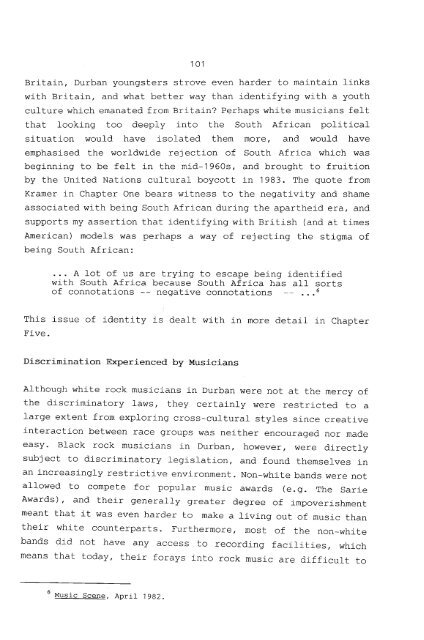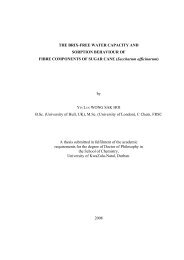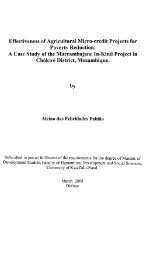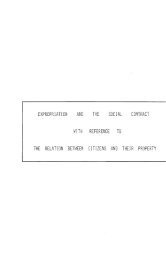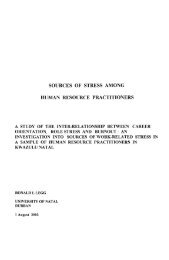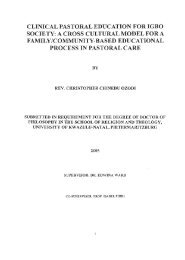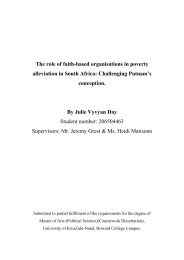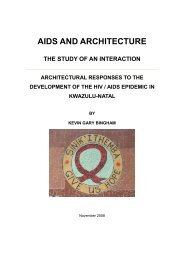FROM ROCK 'N 'ROLL TO HARD CORE PUNK - UKZN ...
FROM ROCK 'N 'ROLL TO HARD CORE PUNK - UKZN ...
FROM ROCK 'N 'ROLL TO HARD CORE PUNK - UKZN ...
Create successful ePaper yourself
Turn your PDF publications into a flip-book with our unique Google optimized e-Paper software.
101<br />
Britain, Durban youngsters strove even harder to maintain links<br />
with Britain, and what better way than identifying with a youth<br />
culture which emanated from Britain? Perhaps white musicians felt<br />
that looking too deeply into the South African political<br />
situation would have isolated them more, and would have<br />
emphasised the worldwide rej ection of South Africa which was<br />
beginning to be felt in the mid-1960s, and brought to fruition<br />
by the United Nations cultural boycott in 1983. The quote from<br />
Kramer in Chapter One bears witness to the negativity and shame<br />
associated with being South African during the apartheid era, and<br />
supports my assertion that identifying with British (and at times<br />
American) models was perhaps a way of rejecting the stigma of<br />
being South African:<br />
... A lot of us are trying to escape being identified<br />
with South Africa because South Africa has all sorts<br />
of connotations -- negative connotations 6<br />
This issue of identity is dealt with in more detail in Chapter<br />
Five.<br />
Discrimination Experienced by Musicians<br />
Although white rock musicians in Durban were not at the mercy of<br />
the discriminatory laws, they certainly were restricted to a<br />
large extent from exploring cross-cultural styles since creative<br />
interaction between race groups was neither encouraged nor made<br />
easy. Black rock musicians in Durban, however, were directly<br />
subject to discriminatory legislation, and found themselves in<br />
an increasingly restrictive environment. Non-white bands were not<br />
allowed to compete for popular music awards (e. g. The Sarie<br />
Awards), and their generally greater degree of impoverishment<br />
meant that it was even harder to make a living out of music than<br />
their white counterparts. Furthermore, most of the non-white<br />
bands did not have any access to recording facilities, which<br />
I<br />
means that today, their forays into rock music are difficult to<br />
6 Music Scene, April 1982.


